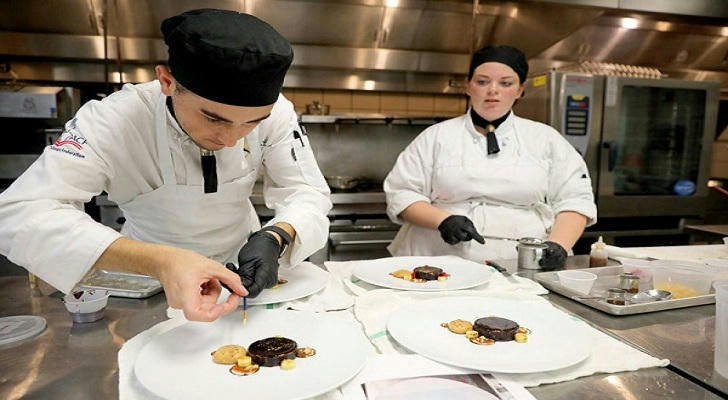U.S. Government-Funded Chef Programs: A Path from Kitchen to Career Development
The food service industry is an important part of the global economy, providing millions of jobs and promoting cultural exchange through food. In many countries, especially in the United States, government-funded chef training programs have become a powerful tool to support workforce development, address skills shortages, and provide sustainable career development paths.
Ⅰ. What is a Chef Program?

Chef programs, also known as culinary arts training, provide structured education covering food preparation, kitchen operations, safety and sanitation, nutrition, and menu planning. Programs range from certificate programs lasting several months to diploma or associate degree programs lasting one to two years. Practical training, usually in the form of internships or apprenticeships, is a core component of the program.
Government-funded chef programs are offered through vocational schools, community colleges, nonprofit training centers, and special workforce development programs. These programs are aligned with the needs of the hotel and food service industry and often include recognized certifications such as ServSafe.
Ⅱ. What do these programs offer?
Participants will gain a comprehensive understanding of cooking techniques, food science, sanitation regulations, and kitchen management. In addition to technical skills, courses often emphasize soft skills such as teamwork, time management, and customer service. Graduates are qualified for positions in restaurants, hotels, schools, hospitals, and catering companies, including:
• Line cooks
• Prep cooks
• Assistant pastry chefs
• Kitchen managers
III. What can a chef program bring to you?
After completing the program, participants typically experience significant improvements in the following areas:
Skill improvement: Master cooking techniques and operational knowledge to meet industry requirements.
Expanded employment opportunities: Work in restaurants, hotels, school cafeterias, nursing homes, and more.
Improved health awareness: Learn nutrition and food safety to improve personal and family dietary habits.
Expanded social networks: Connect with classmates and industry professionals to build your network.
Entrepreneurial preparation: Gain knowledge about restaurant operations and starting a food business.
These programs not only support personal development, but also promote the economic vitality and cultural diversity of the community.
IV. Benefits of Completing a Chef Program
There are many benefits to completing a Chef program through a government-funded program:
Increased employability: Enter the job market with practical experience and recognized certifications.
Career advancement: Skills gained can lead to promotions and higher positions.
Entrepreneurial opportunities: Use your skills to start a catering business or food truck.
Lifelong learning: Serve as a stepping stone for further education, such as pastry arts or nutrition.
V. Case Studies
Case Study 1: Job Training Corps Culinary Program
A participant at the Excelsior Springs, Missouri, Career Center completed a culinary arts apprenticeship in partnership with William Jewell College. The program provided hands-on training in professional kitchens and led to full-time employment as a food preparation cook in a hotel restaurant.
Case Study 2: New York WIOA-Supported Training
A New York training center offers a culinary certification program through the Workforce Innovation and Opportunity Act (WIOA) with a local community college. A previously unemployed student completed the program and began working in a school cafeteria, earning benefits and steady income.
VI. How to Apply for a Government-Funded Chef Program
Applying for a government-funded Chef program typically involves the following steps:
Find an American Job Center
These centers help identify eligible training programs and provide career counseling.Explore Job Corps Programs
Job Corps offers full-time culinary training for individuals ages 16 to 24, including room and board.Contact a Local Community College
Many colleges offer government-funded culinary programs (e.g., Pell Grants, WIOA). Review eligibility and course options.Learn about SNAP E&T (Employment and Training)
SNAP recipients may be eligible for state-run culinary training through SNAP E&T.
VII. Conclusion

Chef courses are more than just learning cooking techniques; they are pathways to career advancement, better lives, and inclusion in the community. With government support, these programs provide people from all backgrounds with practical and accessible opportunities to gain valuable skills that contribute to personal success and economic revitalization.
